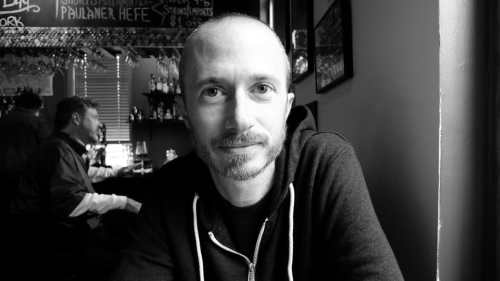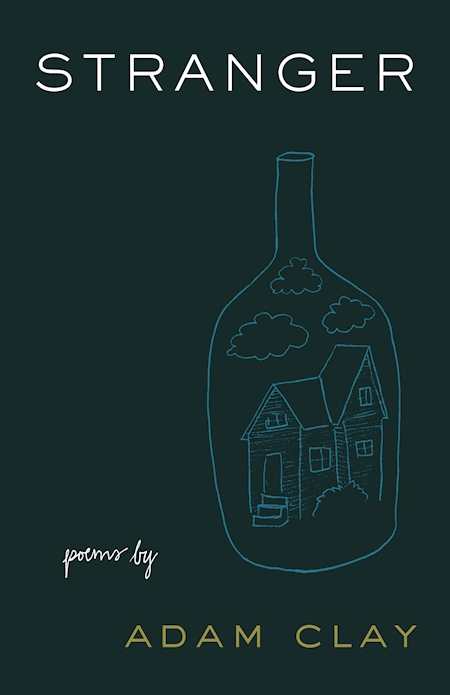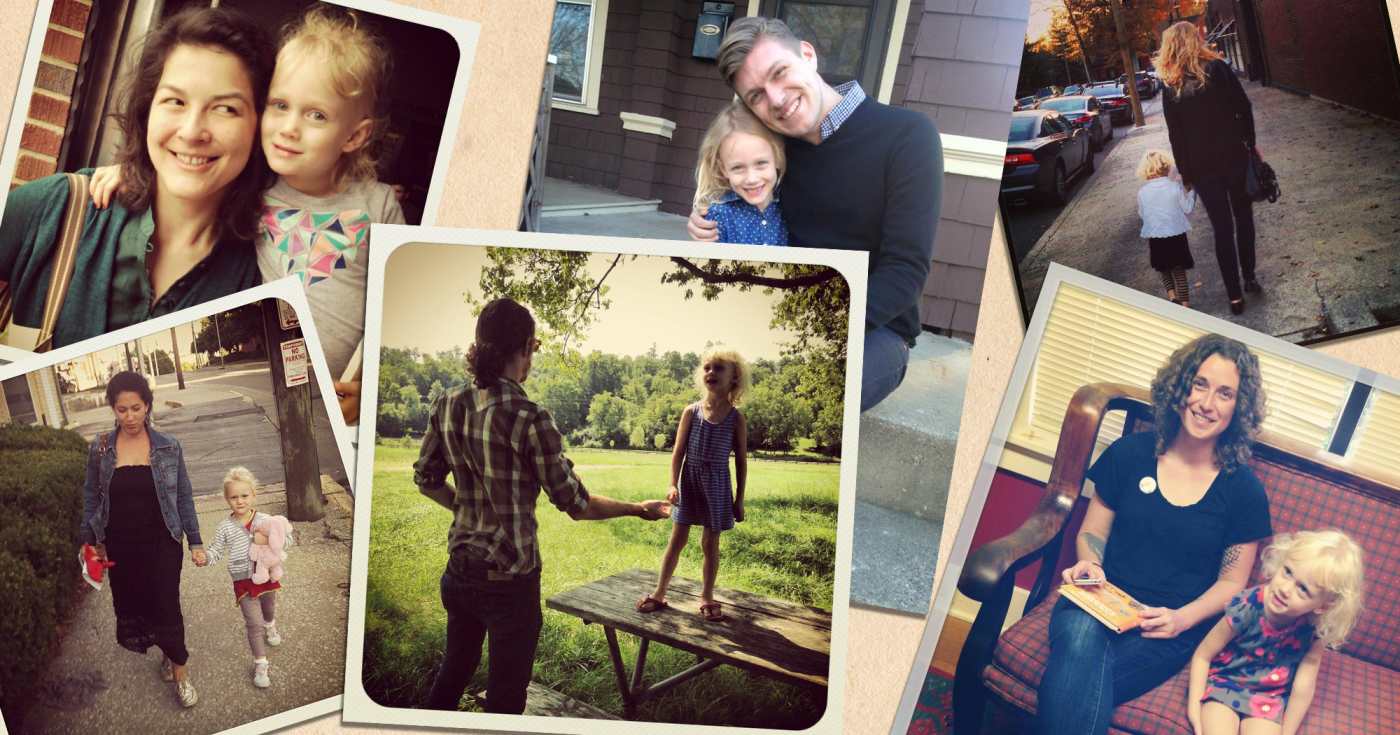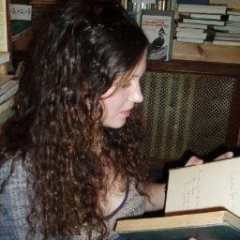Poetry that Changes the World, One Line at a Time

There’s a pause
in imagining a thought
we have free
of each other.
While being a poet in modernity comes with its own sets of difficulties and challenges, Milkweed Editions poet, and professor, Adam Clay is forging his place on multiple fronts. He is an editor at The Kenyon Review, a Co-Editor at Typo Magazine, and publishes prolifically. Stranger, his third collection, was released in February; he’s already hard at work on a fourth.
In addition to his working successes, Clay is a man who weaves the world around him into his artistic ventures:
The way a sentence can fall apart
in your hands is a wonderful thing.
There’s more than one way
to take the world apart:
His young daughter appears frequently in his work, and accompanies him often as he interacts with other poets; his lines themselves appeal to the more pensive natures of our spirits. Intrigued by Clay’s uncommon presence and thought-provoking work, we decided to ask him a few questions about his contemporary poet’s life.
Your poems play with notions of reality, but also find beauty in small moments. How do you find that inspiration most often begins for you?
I used to wait for poems to show up—it could be days or it could be weeks. But since then I’ve shifted to writing as a habit to foster inspiration. I’ve definitely had moments where I’ve been struck by something and feel the urge to write a poem, but I don’t like thinking of poetry as something that’s divinely inspired. I’ve written a poem-a-day through the month of April over the past five or six years and find that this experience changes the way I see the world: one becomes more receptive or open to anything and everything as subject matter for poetry. In writing every day for a month (or more than a month, as I’ve done too), one also has more options to take risks. If a poem doesn’t work, it isn’t the end of the world. There will be another one the next day. And sometimes you have to write the poems that don’t work to make way for the poems that do.
Can you discuss the particular challenges of promoting a collection of poetry, and/or mention a particularly interesting experience from the road?

Adam Clay, Milkweed Editions. 'A poem....can change the way a person views the world.'

As a poet I’ve always felt it’s important to do as much as I can to publicize and promote my work. Milkweed does a lot for me, obviously, but poets also have to take on the responsibility of promoting the work as well. I’ve found that reading my work in a public forum has changed how I write or revise. Occasionally a word or a phrase will just sound wrong at a reading. Or occasionally I’ll read a new poem that doesn’t feel quite right to me, but somehow something clicks and I realize that the poem is working. Bringing poetry to an audience is a communal experience, and it’s one that’s become very important to me.
From the other perspective, it’s important to also help provide a venue for writers as well, whether it be through working as an editor or the coordinator of a reading series. I talk to my students a lot about this idea of literary citizenship—being a writer isn’t always about your own work. It’s important to be an audience member or help provide a place for writers to publish or read their work. I didn’t know it when I started editing TYPO or coordinating a reading series in Kalamazoo, but these moments of engagement have allowed me to become a part of a community. And community is definitely a two-way street.
Tell us a little bit about working with Milkweed Editions to bring Stranger to press.
Milkweed has been wonderful to work with. Before they accepted my second book, they were the publisher I dreamt of having—they’re the perfect size: not too big and not too small. Every one at Milkweed I worked with on Stranger provided personalized attention and guidance, from line-edits, to book design, and even in asking for suggestions of where to send review copies. Because they’ve been publishing since 1980, they understand how to make sure books have a life in the world. And it goes without saying that they make beautiful books, too. Mary Austin Speaker did the cover art and design—I couldn’t be happier with how it turned out.
Your daughter—who also factors into many of your poems—is benefiting from your poetic travels. Can you mention some of the opportunities you’re bestowing upon her?
I had the idea a few years back to start an album on Facebook of “Penny with Poets”—it seemed that I had quite a few photos, and it’s something I hope she’ll look back on one day and appreciate. In terms of how she’s interacting with writers, I’d probably have to say that the poetry community is one of the most genuine and supportive communities I can imagine. Through my own travels (and the poets we’ve hosted), Penny has had the chance to interact with quite a few writers and poets. I don’t know if she’ll be a writer herself, but I’m sure that these interactions with a wide range of writers have influenced her as a person, at least in some way.

Penny with poets. From upper left to right: with Cindy Arrieu-King; Richie Hofmann; Cindy St. John; Ada Limón; Nick Sturm; and Carrie Lorig.
What benefits do you suppose modern people might derive from adding a bit more poetry to their daily lives?
I’ve always loved these lines from William Carolos Williams: “It is difficult / to get the news from poems / yet men die miserably every day / for lack / of what is found there.” Certainly people die miserably every day, but I don’t know if poetry would actually change that for everyone. I do think, though, that a poem (or even just a line) can change the way a person views the world. I carry metaphors from other poets that occur to me on a daily basis—when language can change the way we view or interact the world, it’s done its job.
Dean Young has this wonderful quote about poets: “Everyone is a wonderful poet up until the third grade.” Somehow we managed to have these poetic impulses purged from our minds. I don’t know why this is, but it seems true. I wonder, though, if one could change his quote to something like this: “Everyone is a wonderful person up until the third grade”? Perhaps. There’s something about writing a poem that allows one to view the world in a new way (but also to view another person’s perspective in another way). Through the writing of or engagement with poetry, one can become empathetic. And empathy, if nothing else, is something we could certainly use more of in the world.
What’s next for you in your writing career?
I’m writing new poems now (and sorting through work I’ve written since Stranger) to see what might be there in terms of a new collection. Because Stranger was so much about a shifting world, its subject matter emerged naturally. I’m seeing a number of themes in these new poems, but it looks more and more like a book concerned with life in the Anthropocene and what the future holds. Because some of the first poems ever spoken or written down are an attempt at understanding nature, it seems like poetry provides a way of understanding what we’ve done to nature. I’ve been drafting some lyrical essays to consider how other writers have engaged with nature in the past—Emily Dickinson has been at the forefront of my mind. I can see this new collection becoming a hybrid project: prose and poetry that considers the natural world we’re living in and the natural world we’ll leave for those who haven’t arrived yet.

Michelle Anne Schingler is associate editor at Foreword Reviews. You can follow her on Twitter @mschingler or e-mail her at mschingler@forewordreviews.com.
Michelle Anne Schingler
